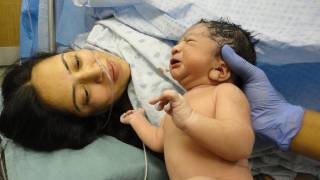Rotavirus Vaccine Delivers Positive Results

The rotavirus vaccine may be delivering two, measurable health benefits to society.
New research reports that the rotavirus vaccine can reduce disease burden and help reduce health inequalities across all age groups.
As an example, this new research found that adults, aged 65+ years, acute gastroenteritis hospitalizations fell by 25 percent.
This study strongly indicates that rotavirus vaccination reduced the incidence of acute gastroenteritis across a healthcare system, in both vaccine-eligible and ineligible populations.
These data strongly support the sustained use of the rotavirus vaccine in the UK and to other European countries.
This study focused the monovalent rotavirus vaccine, Rotarix, in the UK, beginning July 2013 to June 2016. The vaccination was a free service to parents, with two doses delivered at 8 and 12 weeks of age.
The outcome measures included laboratory-confirmed rotavirus gastroenteritis (RVGE) hospitalizations, acute gastroenteritis (AGE) hospitalizations, emergency department (ED) attendances for gastrointestinal conditions and consultations for infectious gastroenteritis at community walk-in centers (WIC) and general practices (GP).
The uptake of the first and second doses of rotavirus vaccine was 91.4% (29,108/31,836) and 86.7% (27,594/31,836), respectively.
Among children aged < 5 years, the incidence of gastrointestinal disease decreased across all outcomes post-vaccine introduction:
- 80% (95% confidence interval [CI] 70–87%; p < 0.001) for RVGE hospitalisation,
- 44% (95% CI 35–53%; p < 0.001) for AGE hospitalisations,
- 23% (95% CI 11–33%; p < 0.001) for ED,
- 32% (95% CI 7–50%; p = 0.02) for WIC and
- 13% (95% CI -3–26%; p = 0.10) for GP.
Additionally, following the introduction of rotavirus vaccination, the greatest impact was among the most deprived populations, despite lower vaccine uptake.
This study supports previous rotavirus research in the USA.
Following the introduction of rotavirus vaccines in the USA, more than 380,000 children avoided hospitalization for diarrhea from 2008 to 2013, saving an estimated $1.2 billion in direct medical costs.
“Our findings confirm the sustained effectiveness of the rotavirus vaccine program,” said Eyal Leshem, MD, formerly of the Centers for Disease Control and Prevention (CDC).
These rotavirus vaccines are currently licensed for use for infants in the United States:
- RotaTeq® (RV5) is given in 3 doses at ages 2 months, 4 months, and 6 months
- Rotarix® (RV1) is given in 2 doses at ages 2 months and 4 months
- Both vaccines are given by mouth (orally), not by a shot.
The CDC Vaccine Price List provides the private sector vaccine prices for general information.
Visit here for more information on this program.
All of the authors of this UK study have completed the ICMJE uniform disclosure form at www.icmje.org/coi_disclosure.pdf and declare: NC, NF, MIG, RV and DH are in receipt of research grant support from GlaxoSmithKline (GSK) Biologicals. Outside of this study, MIG and DH are in receipt of research grant support from Sanofi Pasteur-MSD (SPMSD) and NC has received honoraria for participation in GSK Rotavirus Vaccine Advisory Board Meetings.
This study is supported by GlaxoSmithKline Biologicals SA (EPI-Rota-048; study number 201424) and the University of Liverpool. GlaxoSmithKline Biologicals SA was provided with the opportunity to review a preliminary version of this abstract for factual accuracy but the authors are solely responsible for the final content and interpretation. The authors received no financial support or other forms of compensation related to the development of the abstract. RV receives a salary contribution from the Health Protection Research Unit in Emerging and Zoonotic Infections of the National Institute for Health Research (NIHR) and RV and MIG also receive salary contributions from the NIHR Health Protection Research Unit in Gastrointestinal Infections.
Our Trust Standards: Medical Advisory Committee

























